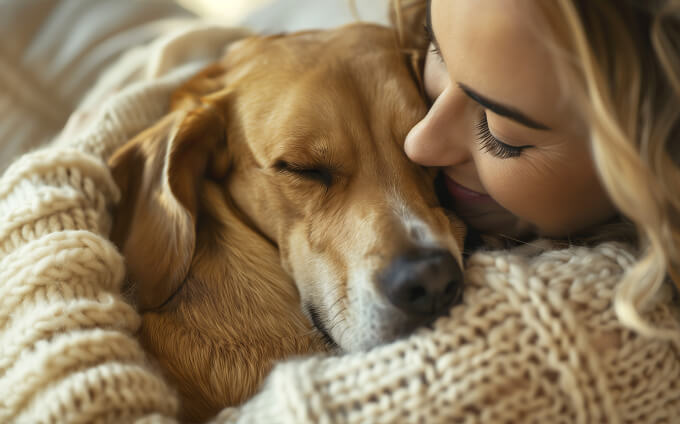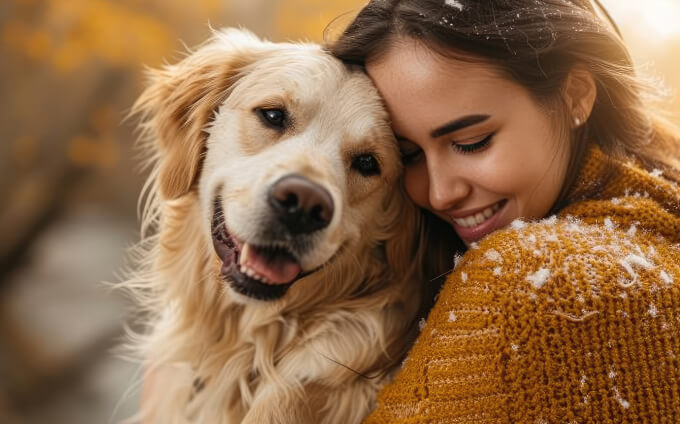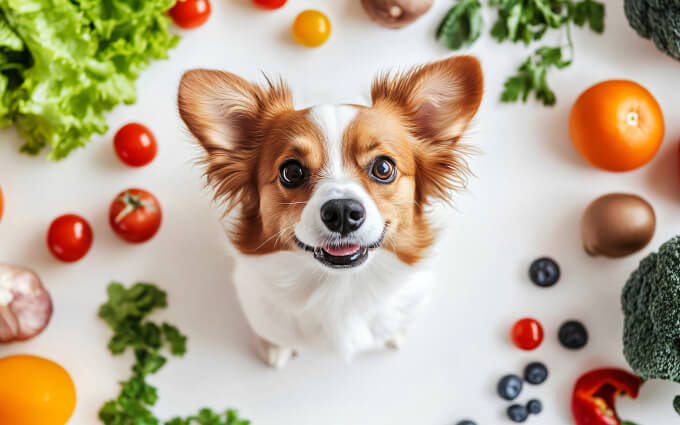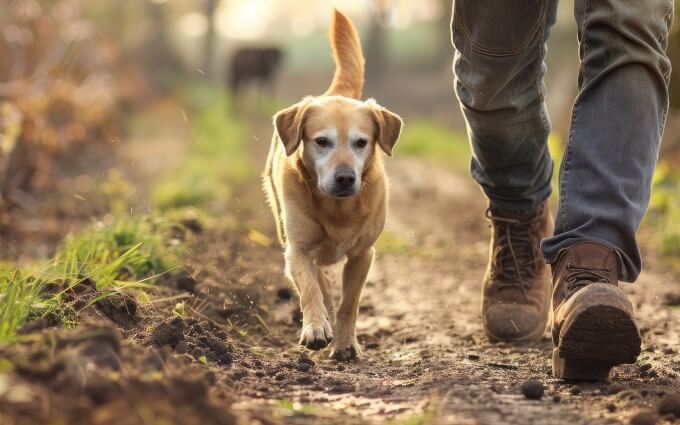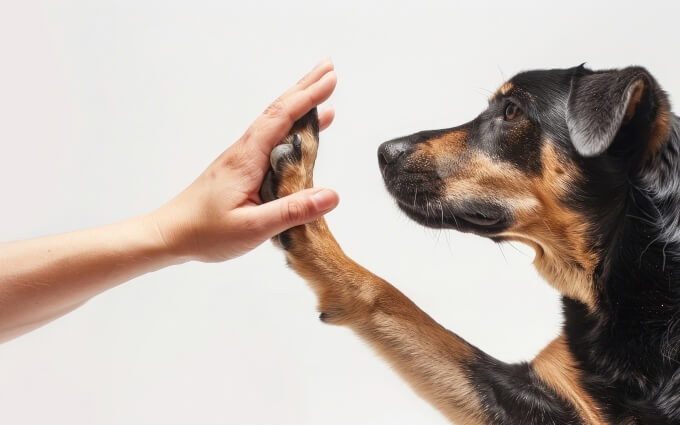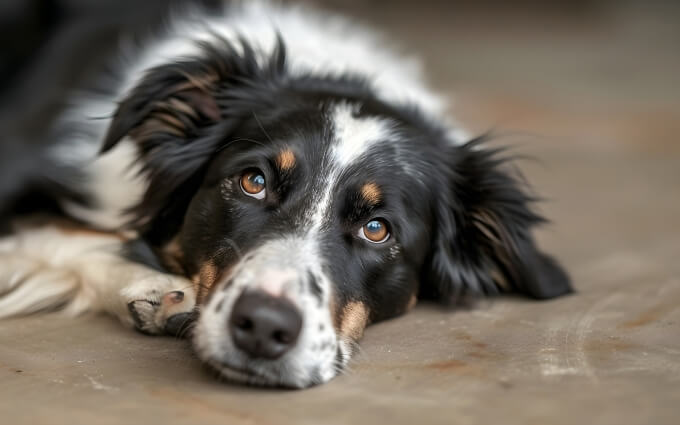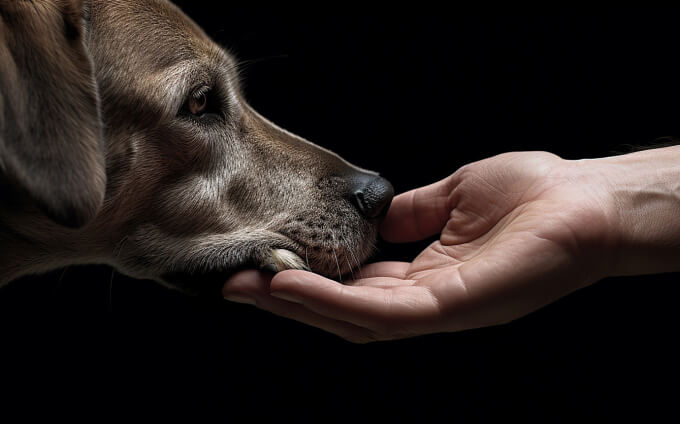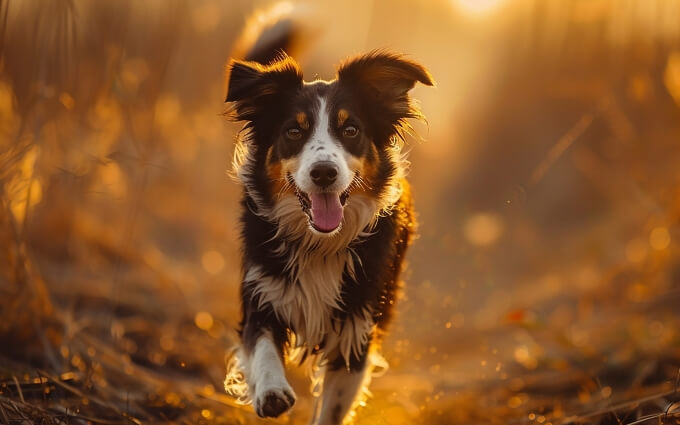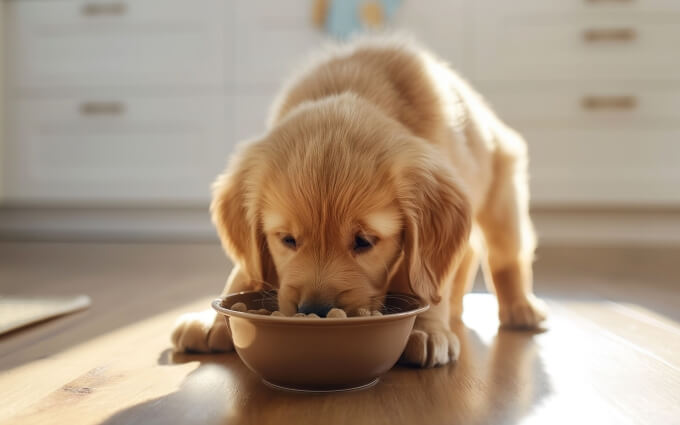- Home
- Food & Nutrition
- 9 foods your dog should not eat - See the list here!
9 foods your dog should not eat - See the list here!
Did you know that some foods can be dangerous for your dog? Read here about what you should never feed your dog and how to protect their health

- 26
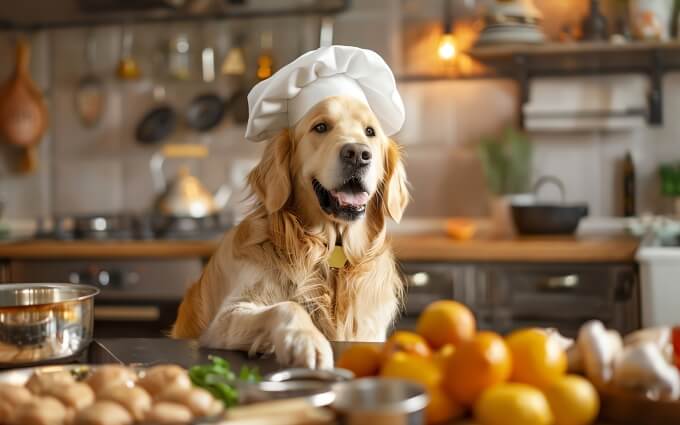
Watch what your dog eats
We love to spoil our four-legged friends and it can be tempting to share our food with them. But did you know that some common foods can be downright dangerous for dogs? It's important to be aware of what you feed your dog to protect their health. Let's take a look at what's on the list of foods you should never give your dog.
Chocolate: A sweet danger
Chocolate is one of the most well-known foods that are toxic to dogs. It contains theobromine, which dogs cannot break down effectively. Even small amounts of chocolate can cause serious problems such as vomiting, diarrhea, heart problems and even death.
Symptoms of chocolate poisoning
- Vomiting and diarrhea
- Hyperactivity
- Shaking and seizures
Onions and garlic: Hidden dangers
Onions and garlic, both raw and cooked, can cause damage to dogs' red blood cells, which can lead to anemia. Symptoms may take several days to appear, but they include weakness, lethargy and dark urine. Make sure your dog doesn't have access to onions or garlic in any form.
Typical symptoms of onion and garlic poisoning
- Weakness and lethargy
- Dark urine
- Shortness of breath
Grapes and raisins: Small but dangerous
It may be surprising, but grapes and raisins can cause acute kidney failure in dogs. Even small amounts can be harmful and symptoms include vomiting, diarrhea, lethargy and loss of appetite. If you think your dog has eaten grapes or raisins, contact your vet immediately.
Signs of grape and raisin poisoning
- Vomiting within a few hours
- Diarrhea
- Loss of appetite and lethargy
Xylitol: The hidden sweetener
Xylitol is an artificial sweetener found in many sugar-free products like chewing gum, candy and baked goods. For dogs, ingesting xylitol can lead to a rapid release of insulin, resulting in life-threatening low blood sugar. In some cases, it can also cause liver failure.
Symptoms of xylitol poisoning
- Vomiting
- Weakness and collapse
- Convulsions
Avocado: Not so healthy for dogs
Although avocados are healthy for humans, they contain a substance called persin, which can be toxic to dogs. Ingesting avocados can lead to vomiting and diarrhea, and in the worst case it can affect your dog's heart and lungs.
Avoid giving your dog avocados in any form, including avocado toast, which is a popular human snack.
Alcohol: Goes without saying
Alcohol and dogs are a very bad combination. Even small amounts of alcohol can cause severe poisoning in dogs. Symptoms include vomiting, diarrhea, coordination problems, difficulty breathing, coma and, in the worst cases, death.
Keep all forms of alcohol away from your dog, whether it's beer, wine, spirits or alcoholic foods like rum balls.
Caffeine: Not just in coffee
Caffeine is not only found in coffee, but also in tea, energy drinks and some medical products. Dogs are much more sensitive to caffeine than humans and even small amounts can cause serious health problems such as restlessness, palpitations, tremors and seizures.
Symptoms of caffeine intoxication
- Restlessness and hyperactivity
- Shivering and seizures
- Fast breathing and heart palpitations
Milk and dairy: Not all dogs can tolerate it
Many dogs are lactose intolerant, which means they have difficulty digesting milk and dairy products. Ingesting them can lead to digestive issues like diarrhea and vomiting. It's best to avoid giving your dog milk, cheese, ice cream and other dairy products.
Bones from cooked meat: A hidden danger
It may seem natural to give your dog a bone to gnaw on, but cooked bones can splinter and cause serious damage to the gastrointestinal tract. This can lead to blockages, perforations and even internal bleeding. If you're going to give your dog a bone, it should be raw and the right size for your dog.
Risks of cooked bones
- Shrapnel that can perforate the gastrointestinal tract
- Blockages in the intestines
- Internal bleeding
Frequently Asked Questions about foods dogs should not eat
What human foods are dangerous for dogs?
Foods like chocolate, grapes, onions, garlic, and xylitol are toxic to dogs and should be avoided.
Can dogs eat grapes or raisins?
No, grapes and raisins can cause kidney failure in dogs, even in small amounts.
Is chocolate really harmful to dogs?
Yes, chocolate contains theobromine, which is toxic to dogs and can lead to serious health issues.
Can dogs eat onions and garlic?
No, both onions and garlic can damage a dog's red blood cells and cause anemia.
What should I do if my dog eats something toxic?
Contact your veterinarian immediately and provide details about what and how much your dog ate.
Concluding thoughts: Be a responsible dog owner
It's our responsibility as dog owners to ensure our four-legged friends only get the best. By avoiding these dangerous foods, you can help protect your dog's health and well-being. Always remember to consult your vet if you are unsure about what is safe to feed your dog.
- 26
 Marcin Solgaard
Marcin Solgaard
Marcin is a true dog enthusiast! He is always seen with his 9-year-old boxer by his side. Marcin believes that dogs thrive on love, fun and positive experiences. On their daily adventures, people often stop Marcin to ask how his boxer is so happy and well-behaved. He happily shares tips on dog behavior and fun activities to create a happy and harmonious life with your dog.
-
Dog Behavior
 Does My Dog Know I Care About It?
Does My Dog Know I Care About It?Discover the ways your dog shows it knows you care and how you can reinforce that loving bond through simple actions and daily interactions.
 Cassandra DalgaardAug 05, 202444
Cassandra DalgaardAug 05, 202444 -
Dog health
 Which Emotions Do Dogs Actually Experience? Understanding Your Dog's Emotions
Which Emotions Do Dogs Actually Experience? Understanding Your Dog's EmotionsDogs experience a variety of basic emotions similar to those of a young child. Learn about the emotions your dog truly feels, how they express them, and what it means for your relationship.
 Cassandra DalgaardJul 30, 202478
Cassandra DalgaardJul 30, 202478 -
Food & Nutrition
 The Best Foods to Boost Your Dog's Immune System
The Best Foods to Boost Your Dog's Immune SystemTo keep your dog healthy and resilient, fueling their immune system with the right foods is key. In this post, we'll cover the top nutrient-packed foods that can give your dog's immune system the support it needs, helping them fend off illness and stay energetic.
 Marcin SolgaardOct 04, 20249
Marcin SolgaardOct 04, 20249 -
Tips & Tricks
 How to Train Your Dog to Walk Off-Leash
How to Train Your Dog to Walk Off-LeashThis guide will walk you through everything you need to know, from essential commands to mastering off-leash walks even in distracting environments
 Marcin SolgaardJul 02, 202451
Marcin SolgaardJul 02, 202451 -
Tips & Tricks
 How to Train Your Dog to Give Paw
How to Train Your Dog to Give PawTeaching your dog to give paw is a fun and rewarding experience that strengthens your bond. This guide walks you through the process with tips, tricks, and plenty of paw-sitive reinforcement.
 Marcin SolgaardApr 11, 202441
Marcin SolgaardApr 11, 202441 -
Dog Behavior
 Why Your Dog Ignores You and How to Change It
Why Your Dog Ignores You and How to Change ItIs your dog ignoring you? Explore the reasons behind this behavior and actionable steps to bring back the focus, from training techniques to environmental adjustments.
 Marcin SolgaardJul 16, 202439
Marcin SolgaardJul 16, 202439 -
Tips & Tricks
 Are You Ready for Life with a Dog? Everything You Need to Know
Are You Ready for Life with a Dog? Everything You Need to KnowThis guide helps you determine if you're ready for a dog by exploring the responsibilities, financial requirements, and lifestyle changes necessary for successful dog ownership.
 Marcin SolgaardJul 31, 202433
Marcin SolgaardJul 31, 202433 -
Dog Behavior
 Why Does My Dog Put Its Head on Me? Understanding the Behavior
Why Does My Dog Put Its Head on Me? Understanding the BehaviorEver wondered why your dog puts its head on you? This guide dives into the reasons behind this endearing behavior, from seeking comfort to showing love.
 Michelle TorringAug 03, 202428
Michelle TorringAug 03, 202428 -
Tips & Tricks
 How to Teach Your Dog to Come When Called
How to Teach Your Dog to Come When CalledThis guide walks you through the process, from selecting the right command to dealing with distractions, ensuring a strong recall every time.
 Marcin SolgaardJul 10, 202448
Marcin SolgaardJul 10, 202448 -
Food & Nutrition
 How to Choose the Right Diet for Your Allergic Dog
How to Choose the Right Diet for Your Allergic DogFind out how to select the perfect diet for your dog with allergies. Learn about elimination diets, hypoallergenic foods, and the best ingredients to keep your furry friend healthy and happy.
 Marcin SolgaardJun 09, 202427
Marcin SolgaardJun 09, 202427

